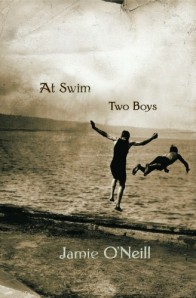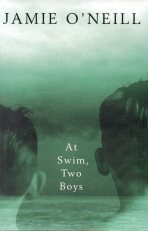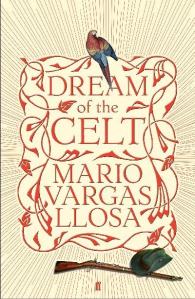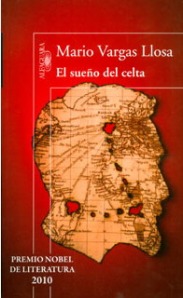Moderator: Aaron
Attendees: Alexius, Amit, Har, Jiaqi, Luke, Raj, Timmy
OPENING
The general consensus was that we did not like this book. Raj did not manage to finish the book (a first time for everything!) and felt that it was draggy, which Aaron and Alexius agreed. The latter also felt that the drama was outdated, with the scenes being too long and equated it as a “Hong Kong TVB drama.” Jiaqi felt that the book was a tough read, to which Har agreed, saying that it was not an immediate appreciation. Aaron further added that the storyline felt childish and amateurish.
THEMES AND CHARACTERS
Aaron brought up the quote by Aunt Nancy: “All Love Does Ever Rightly Show Humanity Our Tenderness.” Timmy philosophized that despite the war, humans are still capable to love, whereas Jiaqi thought the quote as just another quote. Aaron opined that it tied in with the theme of story – of love, humanity and tenderness. Raj equated Aldershot (taking the first letters) as a gay town.
We talked about Mr Mack, whom Raj thought of as an opportunist, leeching off the aunt. Both Har and Jiaqi shared a love-hate relationship with the character, not liking him because he was a control freak but subsequently liking him when he started showing sympathy and understanding towards Jim. Alexius viewed him as “a big strategist,” while Aaron thought of Mr Mack as a comical character.
In comparing Jim & Doyler’s relationship and Mr Mack & Doyler’s relationship, Alexius commented that “Jim was not his father” and thus, their relationships were dissimilar. The biggest difference between the two was that Jim and Doyler had sex with each other, while Mr Mack and Doyler’s maintained only friendly decorum. Aaron then asked whether was it better to be in first generation (Mr Mack & D’s father = friends) or the second generation (J & D = fucking), to which Raj answered the second gen, while Har felt the first gen had the better ending.
MacMurrough the schizophrenic was then discussed. Alexius viewed him as a lonely person who created the imaginary friend as his companion. Jiaqi disagreed, as he felt that MacMurrough could differentiate and instead perceived him as a conflicted character who struggled with being gay. Aaron brought up about the voices that disappeared in the second half of the book, which he observed as MacMurrough’s transformation from self-hatred to love, thanks to Jim. Har thought that the voices were akin to his subconscious.
Everyone had differing views of MacMurrough’s relationships with Jim and Doyler. Jiaqi reckoned that MacMurrough loved J and wanted him to be happy, while being physically attracted to D. Aaron viewed M and J’s relationship as one of pure love, while D has a lot of sex with him. At the other end of the spectrum, Har felt that the relationship with J was purely platonic, while it was romantic when he was with D.
 Doyler’s rape was brought up as well as what happened that made MacMurrough feel that he was not in control. Timmy quipped that it was because D was a power bottom, while Jiaqi opined that M needed D more than vice-versa.
Doyler’s rape was brought up as well as what happened that made MacMurrough feel that he was not in control. Timmy quipped that it was because D was a power bottom, while Jiaqi opined that M needed D more than vice-versa.
We also discussed at length MacMurrough’s encounters with his 10-year-old self.
Everyone gushed about the washerwoman, and her initial introduction in the book. Unanimously, everyone agreed that she symbolized Ireland – the motherland that nurtures you (Jiaqi) and someone who is associated with patriotism, land and nature (Aaron). Raj saw her as a simple country folk who enjoy the simple things in life.
Aaron then brought specific examples (the 300 Spartans, the Irish Oscar Wilde exchange, Jim’s internalization of the soldier’s speech as his love for Doyler) and suggested that the author was trying to associate Ireland with homosexuality, which drew a negative reaction from Jiaqi, who felt that it was more about identity as opposed to homosexuality, and zero responses from the rest.
The women characters were then brought up. Har saw Eva as a revolutionist; an independent and modern character who embodied the fighting spirit, though ultimately she was forgettable. Aaron felt that she was the weakest character and was written as a fag hag, while Alexius imagined her as a “menopausal butch who transformed into Mother Theresa” towards the end of the book. Jiaqi was favourable towards her, who thought that she was well portrayed and had a few funny moments. Raj thought of her as elite
As for Nancy, Jiaqi felt that she was only a minor character in the book, while Aaron saw her as a motherly figure who was nurturing towards everyone.
And none for Sawney.
When asked whether the book was reductive towards the other gender, Har succinctly described that the book was not a feminist book.
We talked about the ending and questioned whether it was a happy or sad one. Both Har and Alexius viewed it as a happy ending, because “they finally met in the end” (Har) and “(the book) finally ended” (Alexius). Jiaqi, however, thought it was a sad ending as the main characters died. Amit thought it was a predictable end, as “everyone knows there won’t be a happy ending” whereas Aaron felt that the ending was “appropriate.”
FAVOURITES
Characters
Raj liked Sawney, the insightful butch with a beard.
Alex picked Gordie, whom he viewed as not a minor character.
Jiaqi and Aaron had their JLo references, with the former’s favourite character being Doyler as he “felt like a real person” while the latter selected MacMurrough due to his struggles in defining himself.
Scenes
Alexius thought there were no memorable scenes in the book, though he brought up the one of the priest molesting Jim.
Jiaqi, Raj and Aaron were unanimous in picking the realization that MacMurrough’s washerwoman was Doyler’s mother as their favourite scene(s), with Raj describing it as funny and one that is of “self-irony.”
LAST WORDS
 In rounding up the discussion, we went around asking for something positive of the book. Raj promised to finish reading it, even though the pdf version gave him headaches. Amit thought it was romantic of the author to continue working on the book to 600+ pages, as opposed to taking the quick way out and cut it short. Jiaqi thought it was a good book and themes were very well done. Har, probably the only fanboy of the book, said that it was touching and “made him cry a lot.” He also commented that the writing technique was “very Irish and filled with proses.”
In rounding up the discussion, we went around asking for something positive of the book. Raj promised to finish reading it, even though the pdf version gave him headaches. Amit thought it was romantic of the author to continue working on the book to 600+ pages, as opposed to taking the quick way out and cut it short. Jiaqi thought it was a good book and themes were very well done. Har, probably the only fanboy of the book, said that it was touching and “made him cry a lot.” He also commented that the writing technique was “very Irish and filled with proses.”
Alex commented that given the size of the book, one can use it to train the bicep. He further added that the author’s sleeve photo portrayed him accurately (read: a psychopath). Timmy added on to Alex’s quip by joking that the book can also be used as paperweight and/or killer litter.

 Edwina thought that the author covered various kinds of discriminations in the book and that everything was so factual that it made her read up on history and war, particularly the Irish independent movement. Joshua concurred, saying that the idea(s) for the book were well researched, particularly in geographical terms. He thought that the book developed at a good pace and not “fictionally chaotic.” Raj appreciated the extensive research done for the book too, as well as how Llosa didn’t portray the British and Irish as being the superior races.
Edwina thought that the author covered various kinds of discriminations in the book and that everything was so factual that it made her read up on history and war, particularly the Irish independent movement. Joshua concurred, saying that the idea(s) for the book were well researched, particularly in geographical terms. He thought that the book developed at a good pace and not “fictionally chaotic.” Raj appreciated the extensive research done for the book too, as well as how Llosa didn’t portray the British and Irish as being the superior races. Edwina felt that the portrayals of colonialism, religion, and race were interesting, but when it came to homosexuality, it was too one-sided. Joshua enjoyed the development of patriotism in the book and the flip-flopping of the narratives, although he felt that Llosa’s writing style was “not beautiful and historically accurate”. Language-wise, it was not captivating to him, which surprised him. We deduced that it could be due to the translation rather than Llosa himself. Raj slammed the book, saying that he hated it and found it a horrible crap. “Nothing in the book was portrayed nicely!” he bitched.
Edwina felt that the portrayals of colonialism, religion, and race were interesting, but when it came to homosexuality, it was too one-sided. Joshua enjoyed the development of patriotism in the book and the flip-flopping of the narratives, although he felt that Llosa’s writing style was “not beautiful and historically accurate”. Language-wise, it was not captivating to him, which surprised him. We deduced that it could be due to the translation rather than Llosa himself. Raj slammed the book, saying that he hated it and found it a horrible crap. “Nothing in the book was portrayed nicely!” he bitched.
